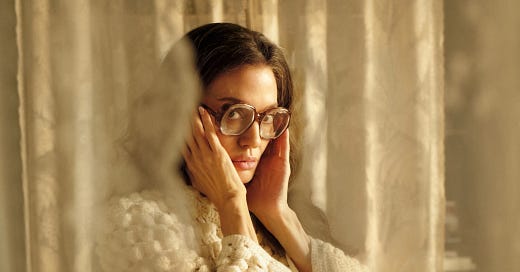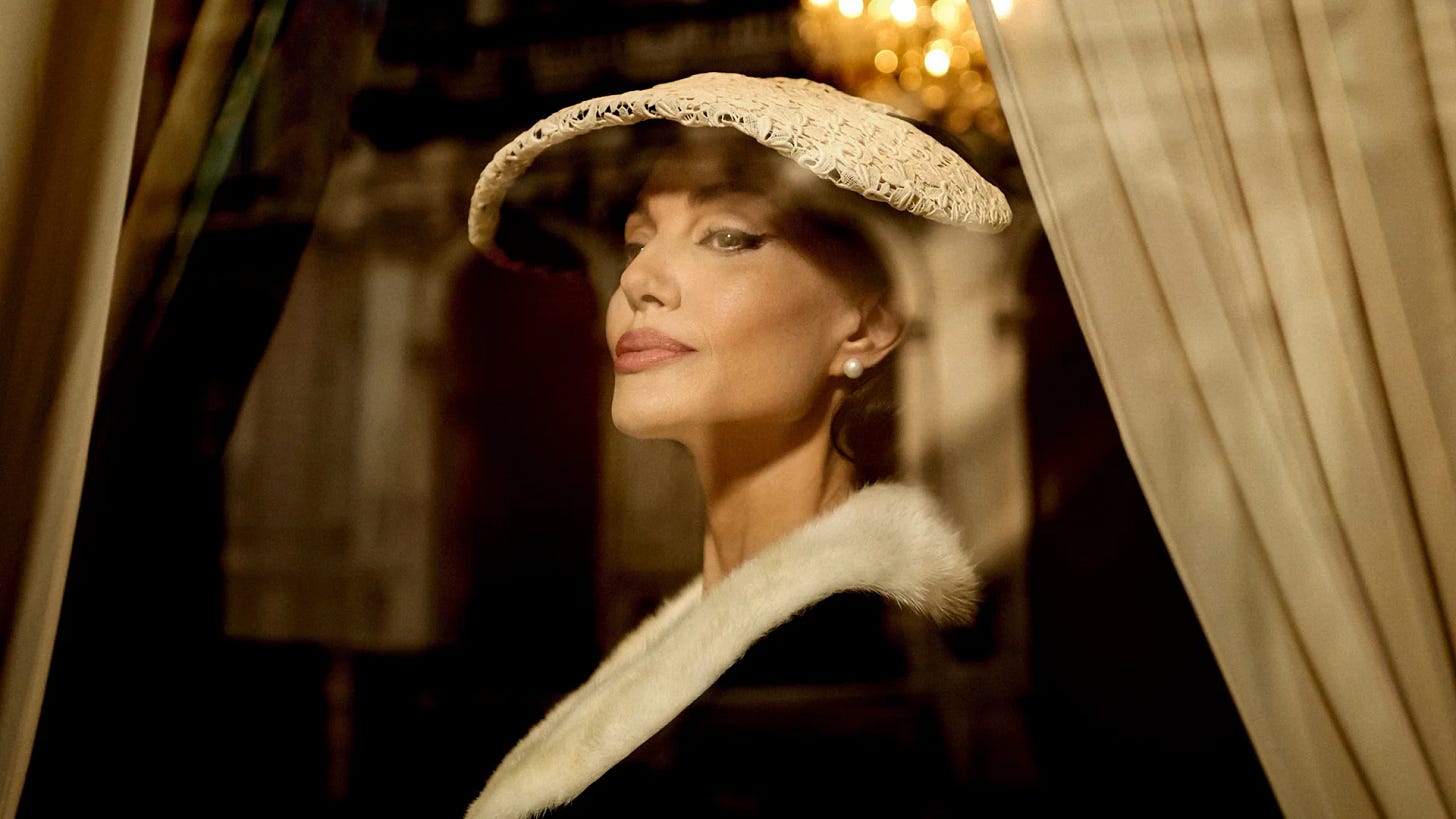‘Maria’: a troubled portrait in cinematic glory
Another honourable female biopic from Pablo Larrain
The first half of this review is spoiler-free.
I have an incredibly vivid memory of seeing Angelina Jolie in Salt as a thirteen-year-old. She had black hair, a fringe and stark kohl-like eyeliner; a total contrast to what I remembered from glitzy magazine covers in supermarkets. Since then, I’ve come to appreciate the many faces of Angelina, each one with a vastly different personality to the last.
It’s true that Jolie has played some iconic characters - Lara Croft and her Oscar-winning performance in Girl, Interrupted come to mind - but none quite as paramount as her latest role in Pablo Larrain’s Maria, where she plays the troubled opera-singer Maria Callas in the last few months of her life.
Larrain has famously focused on prominent female figures like Spencer and Jackie and with this latest instalment, Maria Callas made the whole Royal Festival Hall fall in love with her at the UK premiere hosted by the BFI’s London Film Festival.
Maria is a tale of two truths: one of Maria’s own and another of the truths written about her. There’s an element of exposé that accompanies Larrain’s films and this is no different. With Oppenheimer-esque monochrome flashbacks, it feels odd that Maria isn’t speaking to us directly considering the sincerity with which Jolie performs. We are deftly navigated through the twists and tortures of Callas’ life, both public and private; leading to a culmination that is heavy on the heart - and the viewer - but a delicate ode to her time and talent.
At the premiere, Larrain introduced the supporting cast with a great recognition and acknowledgement and rightfully so - Maria’s two house-staff play excellent roles encompassed in their devotion towards the now-retired operatic performer. They are her only support and through this framing, our empathy is dramatically enhanced for Maria’s mental instability.
Spoilers ahead!
While watching, there was a lovely yet intensely moved Arab woman sitting next to me; crying her eyes out by the end of the film. I’ll admit, it was hard to keep it together at the end. After all, here we were watching the degradation of a public woman’s sanity in private. Chatting to the woman after, she mentioned how she’d grown up with the influence of Callas in her household; soundtracking her childhood. It was in that moment I understood the significance of Larrain opening the film with a monochromatic, music-video-styled performance of Jolie as Callas to one of her most famous recordings.
It wasn’t just an ode to her talent, her house-staff, her lover or her family, but this film is a testament to her impact. I could talk for hours about Larrain’s decision to symbolise Callas’ hallucinations and descent into madness through a personified version of her medication recording and interviewing her, but I’ll keep it simple: Maria is a film that showcases how even the antiquated stories, the traditional art forms and the most private of lives can fall victim to the ever-vicious news cycle of slander and scandal, leaving behind a shell of the person Maria once was.
You can find my Letterboxd review here.





